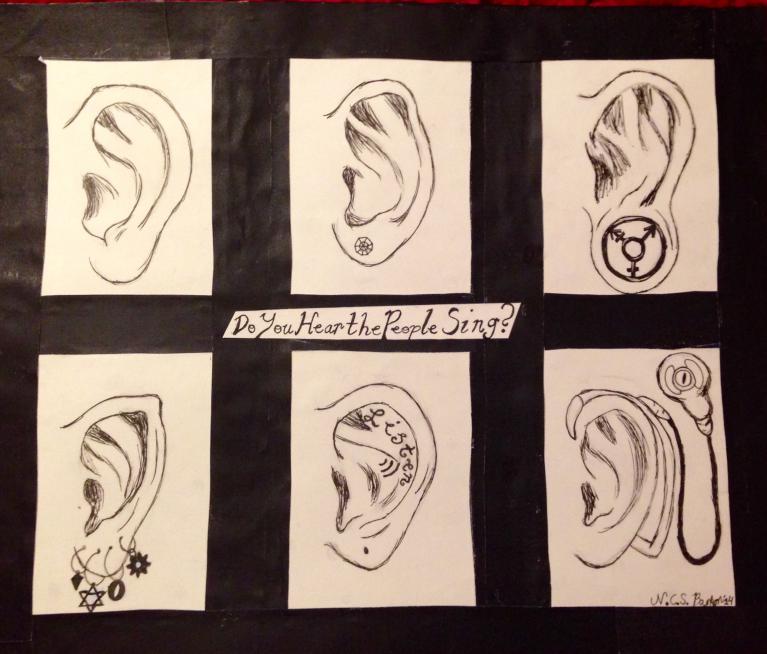Checklist/Final Portfolio Post
By nbarkerDecember 13, 2014 - 13:48


(The original image for the 'Zine. I attempted to represent as many identities as possible in as little visual space as possible, combining influences from pop-art and anatomical drawings. )
Written Work






